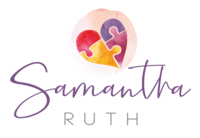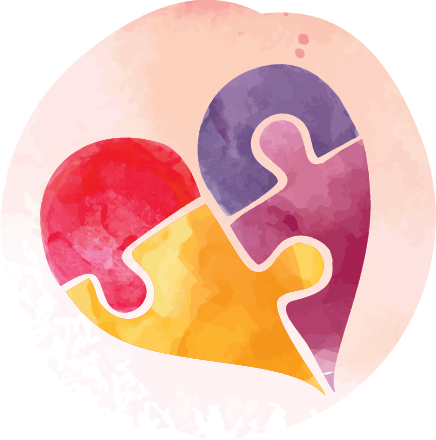Press











ABOUT Sam
SERVICES
Team Ruthless
EVENTS
GRIEFHAB™
PODCAST
RETREATS
shop
HEALING TOGETHER THROUGH THE HOLIDAYS - MAIN EVENT
HEALING TOGETHER - FOR A CAUSE: VIRTUALLY
HEALING TOGETHER - FOR A CAUSE: PILATES IN THE PARK - MICHIGAN
HEALING TOGETHER - FOR A CAUSE: VISIBLE - COLORADO
September 6-7
Jimtember Virtual Jubilee
blog
December 2nd - 8th / Metro Detroit AND VIRTUALLY
August 27th & 28th
August 30-31st
rUTHLESS IN THE ROCKIES
TEAM RUTHLESS
THE CONFIDENCE CONFERENCE
mOBILE rECOVERY dAY
Next event: September 10-23rd, Colorado
October 5-6th -
Virtual Event
September 30th, Castle Rock, Colorado
7 Groups Every week Plus Every Holiday
HEALING TOGETHER - FOR A CAUSE: Ride & ROAR - DALLAS
October 11 -12th
Stay Tuned!
FACES OF GRIEF
JOIN US
11 Things Everyone Should Know About PTSD
September 30, 2016
We’ve all heard the term “PTSD” tossed around multiple times. Unless you have personally experienced it yourself or are closely connected to someone who has, however, you might know very little about it. Though some individuals are beginning to break past the stigma and discuss mental illness more openly, most people still say very little about PTSD. This week, your online mental health counselor is here to discuss a few important things about PTSD that everyone should know.
What Is PTSD?
Before we can begin to discuss PTSD at length, it’s important to ensure that we understand what it is and how it affects people. PTSD stands for Post-Traumatic Stress Disorder. It is an anxiety disorder. When people experience stressful situations, their “fight or flight” response is activated. When they experience an extremely stressful situation or multiple stressful situations in relatively quick succession, this response can become over-activated. It can become too much for people to bear, and they may begin to suffer severe anxiety as a result.
11 Things You Should Know About PTSD
In order to be respectful of (and helpful to) someone suffering from PTSD, it is important to educate yourself on the topic. Familiarizing yourself with these eleven facts can help you get started.
1. PTSD can result from any form of trauma. Examples include being in a car accident, witnessing a death or suicide, experiencing severe military combat, and being the victim of sexual assault or other physical abuse.
2. Though PTSD is most often associated with combat, sexual abuse is the leading cause of PTSD.
3. The duration of PTSD varies greatly. Some people may display symptoms immediately and then recover in a few months, whereas others may show delayed symptoms and then experience their effects for years.


5. PTSD is the result of physiological factors. It is not the result of a weak character or other personality attribute, and it is not “all in their head.”
6. Symptoms of PTSD are vast and varied. Common examples include flashbacks, nightmares or sleep disturbances, anger, anxiety, becoming withdrawn, grief, loss of a sense of purpose, and physical issues such as muscle tension or a racing heart rate.
7. PTSD is different than depression, but the two may often coincide.
8. It can be hard to predict what will trigger an anxiety attack. Common examples include insensitive questions, stories in the media, stressful situations, anniversaries or holidays, and loud noises, but triggers are often different for everyone.
9. People with PTSD are more likely to develop physical ailments, such as cardiovascular or gastrointestinal problems.
10. It is important not to self-diagnose PTSD. If you think you or someone you know may be suffering from PTSD, you should seek a professional assessment.
11. Given enough time and support, it is very possible to recover from PTSD completely.
Don’t Be Afraid To Seek Help
In addition to medication, professional counseling has been very influential in the recovery process for many people suffering from PTSD. In my experience as an online mental health counselor, I have worked with several people to help them overcome PTSD. If you or someone you know is battling with this challenging disorder, I would be honored to help with the journey.
Final Thoughts
Not everyone who experiences a traumatic event will suffer from PTSD, but the possibility is always there. It is alarmingly common (the U.S. Department of Veteran Affairs states that 8 million adults suffer from PTSD annually), but there are still many people who do not understand this often crippling anxiety disorder. Please share this article to help me spread awareness and end the stigma against PTSD and other forms of mental illness.
Leave a Reply Cancel reply
120 E. Front St. Loft 2 Traverse City MI 49684 &
77 Monroe Center St Ste 600 Grand Rapids MI 49503
phone : +1 (231)707-0707


Donate TO GRIEFHAB™
Donate today to help make our events and services free for everyone.
You can also donate directly to support a specific client in need.
four
three
info & Investment
two
THE FOUNDER
one
fIVE
GRAB A COPY OF MY
BOOKS & MERCHANDISE
four
three
info & Investment
two
THE FOUNDER
one


fIVE
GRAB A COPY OF MY
BOOKS & MERCHANDISE










HEALING TOGETHER EVENT
EVENTS
four
three
info & Investment
two
THE FOUNDER
one
fIVE
GRAB A COPY OF MY
BOOKS & MERCHANDISE
four
three
info & Investment
two
THE FOUNDER
one





fIVE
GRAB A COPY OF MY
BOOKS & MERCHANDISE










FACEBOOK FAMILY
GRIEFHAB™ SERVICES
FACES OF GRIEF
Our Press Features
THE BE RUTHLESS SHOW
two
three
Recent Articles
one





Coming in September! Stay Tuned.
December 2nd -8th / Metro Detroit AND VIRTUALLY
August 25th
August 30-31st
October 11 -12th
Stay Tuned!










four
three
info & Investment
two
THE FOUNDER
one





fIVE
GRAB A COPY OF MY
BOOKS & MERCHANDISE
four
three
info & Investment
two
THE FOUNDER
one





fIVE
GRAB A COPY OF MY
BOOKS & MERCHANDISE










